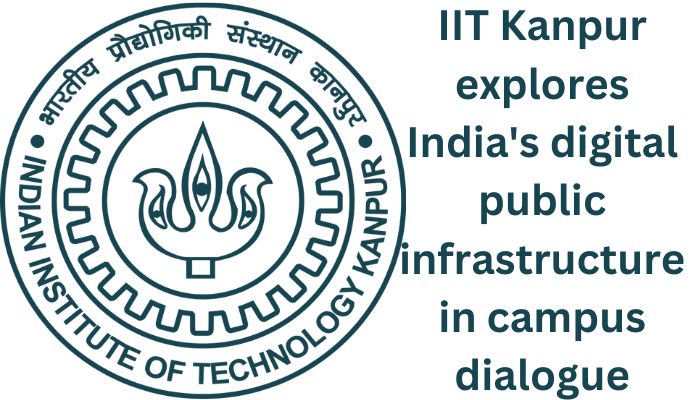IIT Kanpur recently hosted a discourse on Digital Public Infrastructure (DPI) as part of its campus dialogue initiative, “Amrit Kaal – Vimarsh.” The talk, delivered by Dr. RS Sharma, a prominent figure in India’s digital transformation landscape and an alumnus of IIT Kanpur, aimed to inspire students and academics to contribute to a development-focused ecosystem by highlighting the importance of DPI for India’s digital future.
- **Significance of DPI:** Dr. RS Sharma emphasized the remarkable progress India has made in the digital realm through the DPI approach. DPI involves shared digital systems, a collaborative effort between the public and private sectors, built on secure infrastructure, open standards, and open-source software. It enables large-scale service delivery and progress.
- **Historical Roots:** While the term “DPI” may sound new, its roots can be traced back to established concepts like the Internet, common protocols, and standards such as GSM, SMS, CDMA, and IEEE 802.11, which laid the foundation for DPI.
- **Aadhaar’s Role:** The Aadhaar project, initiated in 2009, created unique digital identities for Indian residents. Aadhaar’s cloud-based digital ID facilitates identity verification for various services, including bank account openings, mobile SIM issuance, and ration distribution. It also led to the development of products like Digital Locker, electronic KYC (eKYC), and digital signature on demand (e-Sign).
- **Role in the Digital Landscape:** DPI strikes a balance between all-government and all-private systems, ensuring quality and avoiding monopoly issues. It provides frameworks for frequently required services, offering open protocols, shared platforms, and enabling policies for an interoperable ecosystem. Registries, such as those for healthcare providers, are vital reusable components that require continuous updates for functionality.
- **Global Recognition:** India’s DPI approach, characterized by scalability, interoperability, innovation, and frugality, is viewed as a vision for a digitally inclusive future. It has received recognition not only within India but also on the global stage, as evident by its endorsement in the G20 declaration.
The discourse shed light on the role of DPI in India’s digital future and how it represents a harmonious blend of various elements to create a digitally inclusive ecosystem.

